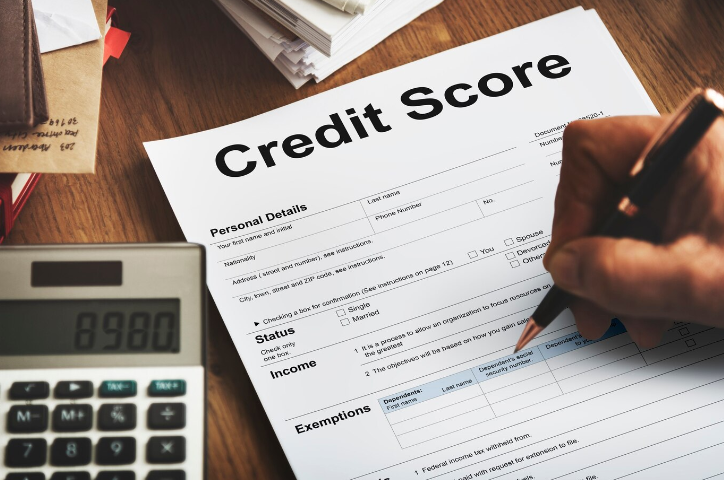Deciding whether to use cash or a credit card for purchases is a common financial decision. Each payment method has its advantages and drawbacks depending on the situation. Using credit cards responsibly can help you manage expenses, earn rewards, and build credit, but there are times when cash might be the better option. This guide explores when to use your credit card and when cash is the smarter choice.
1. When to Use a Credit Card
Credit cards offer several benefits, including convenience, security, and rewards. However, to avoid debt and high-interest charges, it’s important to use them wisely. Here are the situations where using your credit card makes sense:
a. Earning Rewards and Cash Back
Many credit cards offer rewards programs that allow you to earn points, miles, or cashback for everyday purchases like groceries, gas, and dining out. If you’re able to pay off your balance in full each month, credit cards can provide added value through these perks.
- Best for: Regular purchases where you can earn rewards, such as groceries, travel, or online shopping.
- Tip: Use credit for categories that offer bonus rewards, but only if you can pay off the balance.
b. Large Purchases and Financing
Credit cards offer a convenient way to finance large purchases, especially when you need time to pay them off. Many cards offer 0% APR introductory rates, giving you several months to pay for big-ticket items without interest. However, once the introductory period ends, regular interest rates will apply, so it’s important to pay off the balance within the promotional period.
- Best for: Large purchases like electronics, appliances, or furniture when you need time to pay them off.
- Tip: Use cards with 0% APR offers for large purchases, but make sure you have a plan to pay off the balance before interest kicks in.
c. Building Credit
Using a credit card responsibly is one of the most effective ways to build and improve your credit score. Consistently paying your balance on time and keeping your credit utilization low helps demonstrate good financial behavior to lenders. This can improve your chances of getting approved for loans, better interest rates, and higher credit limits in the future.
- Best for: Building a strong credit history by using the card for small purchases and paying the full balance each month.
- Tip: Keep your credit utilization below 30% of your available credit to maximize your credit score.
d. Online Shopping and Travel Protection
Credit cards often provide enhanced security features, including fraud protection, extended warranties, and travel insurance. If your card is lost or stolen, or if fraudulent charges appear, most credit cards offer protection, allowing you to dispute charges and get your money back. Additionally, credit cards often offer perks like car rental insurance, trip cancellation coverage, and purchase protection.
- Best for: Online purchases, travel expenses, or items that need extra protection.
- Tip: Check your credit card’s benefits for specific protections, especially when making high-value or travel-related purchases.
e. Emergencies
Having a credit card available for unexpected expenses, such as medical bills or urgent home repairs, can be a lifesaver in an emergency. While it’s ideal to have an emergency fund, credit cards can provide a financial cushion when immediate access to cash is not possible.
- Best for: Emergency expenses that can’t be covered with cash or savings.
- Tip: Only use credit cards for emergencies if you have a plan to pay off the balance as soon as possible.
2. When to Use Cash
While credit cards offer numerous benefits, there are situations where using cash might be the better option. Cash can help you control spending, avoid interest, and keep your finances simple.
a. Avoiding Debt
One of the biggest advantages of using cash is that it prevents you from accumulating debt. When you pay with cash, you’re limited to the amount you have on hand, which helps you avoid overspending. This makes it easier to stick to a budget and live within your means.
- Best for: Daily expenses like groceries, dining out, or small purchases when you want to avoid overspending.
- Tip: Use cash for discretionary spending to keep your budget under control and avoid the temptation of credit.
b. Small Purchases
For small, everyday purchases like a cup of coffee or a quick snack, cash is often more convenient. Using cash for minor purchases can also help you avoid credit card interest and fees if you don’t pay off your balance in full.
- Best for: Small purchases that can be easily paid for with the cash you have on hand.
- Tip: Keep a small amount of cash for minor purchases, especially in places where cards aren’t accepted or may incur minimum purchase requirements.
c. Managing a Tight Budget
If you’re working with a tight budget or trying to control your spending, using cash can help you stay on track. With cash, it’s easier to limit your spending to the amount you physically have. Once your cash runs out, you can’t spend more, which can be useful for those who have difficulty managing credit card limits.
- Best for: Budget-conscious individuals who need to control spending on non-essential items.
- Tip: Use the envelope budgeting method, where you allocate cash to specific categories (e.g., groceries, entertainment) and only spend what’s in each envelope.
d. Avoiding Fees
Some merchants charge additional fees for credit card payments, particularly for small transactions or specific types of payments (e.g., utilities, taxes). In such cases, paying with cash can help you avoid extra costs.
- Best for: Transactions where credit card fees are charged, such as at small businesses or for utility bills.
- Tip: Always check if there are additional fees for using a credit card, and pay with cash to avoid them when possible.
e. Preventing Fraud and Theft
Using cash can also help prevent certain types of fraud. For example, in places where card readers are more vulnerable to skimming or theft, cash may be a safer alternative. Additionally, using cash means your personal financial information isn’t shared, reducing the risk of identity theft.
- Best for: High-risk areas or transactions where card security might be compromised, such as small local vendors or public spaces.
- Tip: Use cash in areas where you’re concerned about card security or when traveling abroad to minimize the risk of card theft.
3. Cash vs. Credit: Key Considerations
When deciding between cash and credit, consider the following factors:
- Interest: Credit cards can charge high-interest rates if you carry a balance, making cash a better option if you can’t pay your bill in full.
- Rewards: If your credit card offers rewards, use it for purchases where you can earn points or cashback, but only if you can afford to pay off the balance.
- Budgeting: Cash can help you stick to a budget by limiting your spending to what’s available, while credit can encourage overspending if not carefully managed.
- Security: Credit cards offer better fraud protection and purchase security, making them ideal for online shopping and travel. However, in-person purchases may be safer with cash in certain situations.
Conclusion
Both cash and credit have their advantages, and the best choice depends on your spending habits, financial goals, and the situation. Credit cards are great for building credit, earning rewards, and providing security for large or online purchases. However, cash is ideal for avoiding debt, sticking to a budget, and managing small expenses. By understanding when to use each method, you can make smart financial decisions that align with your goals and keep your spending under control.


